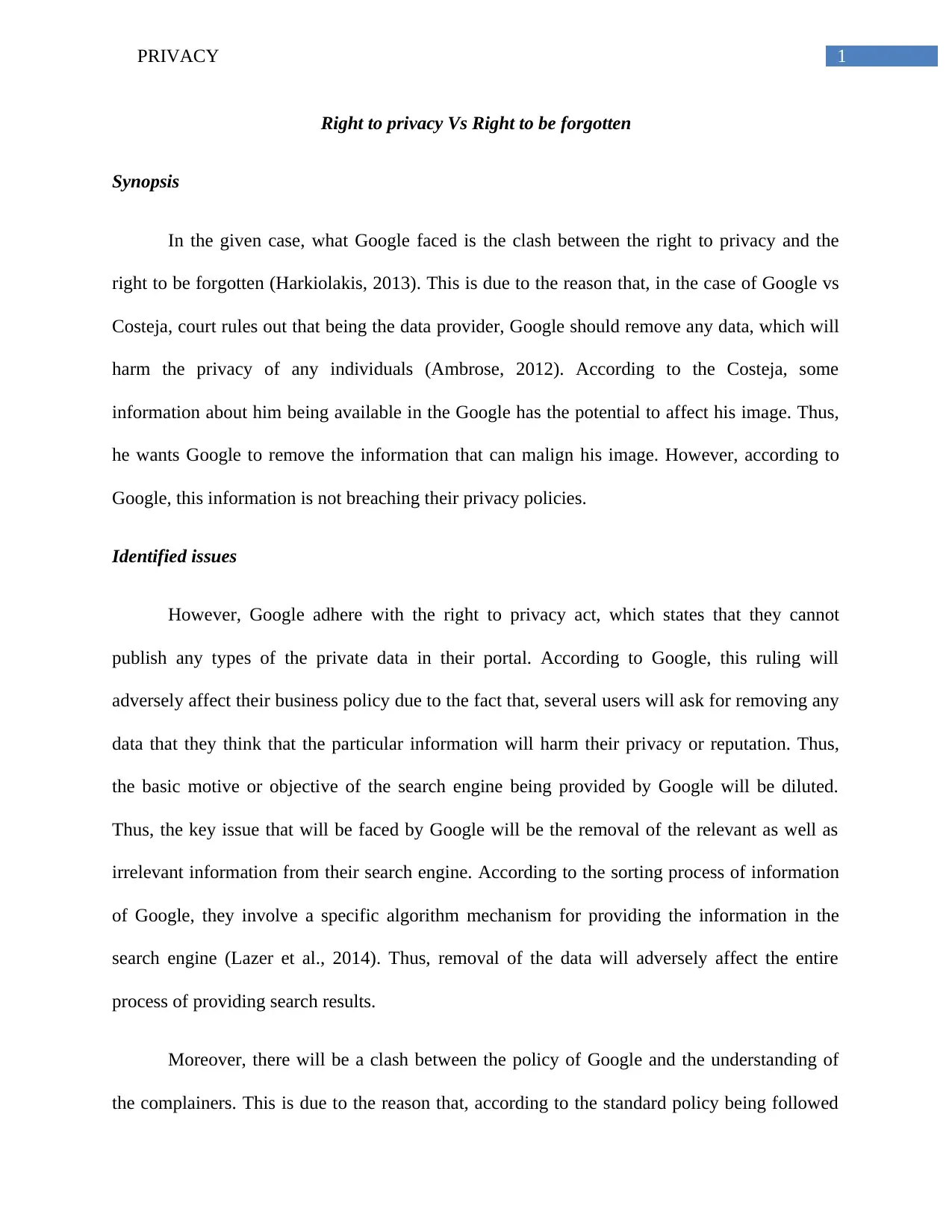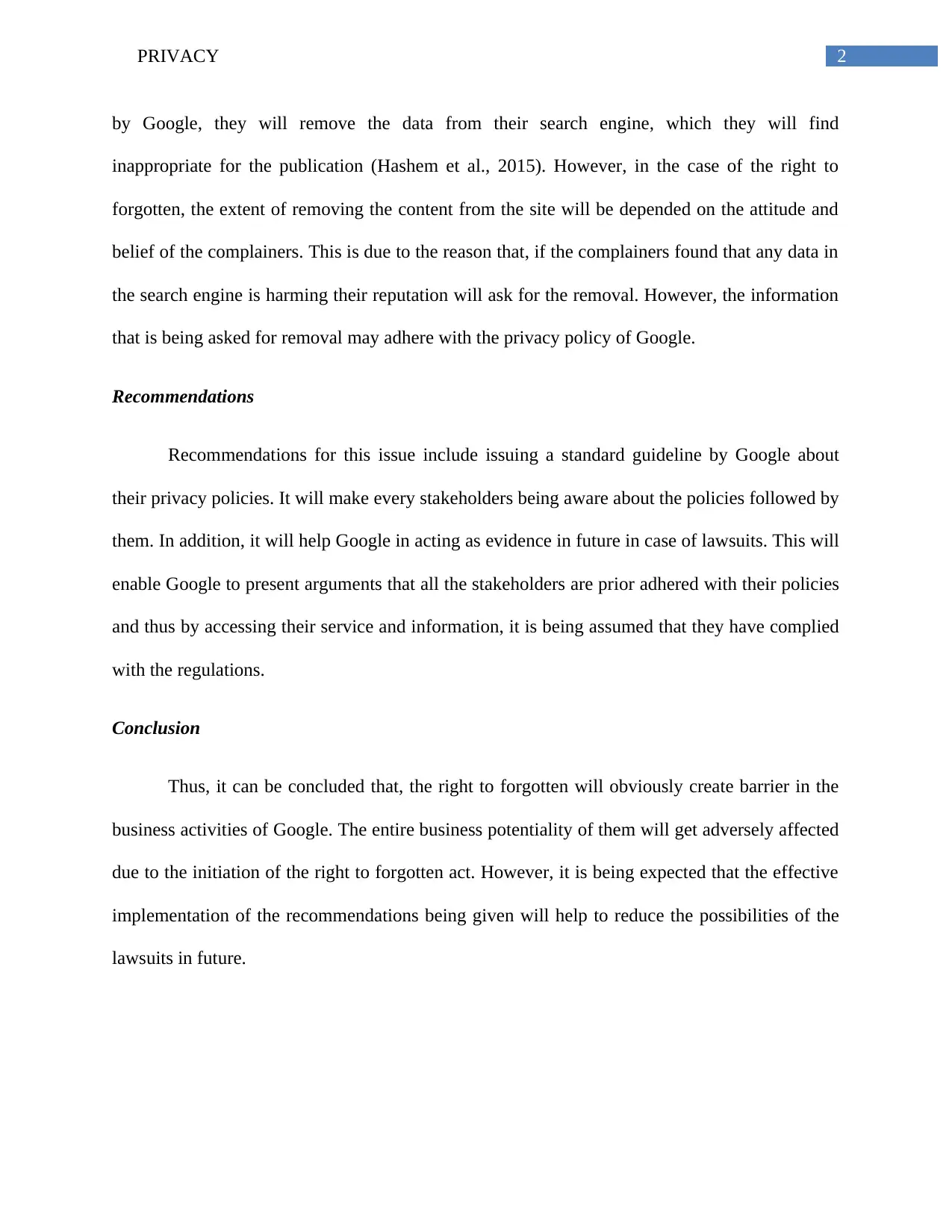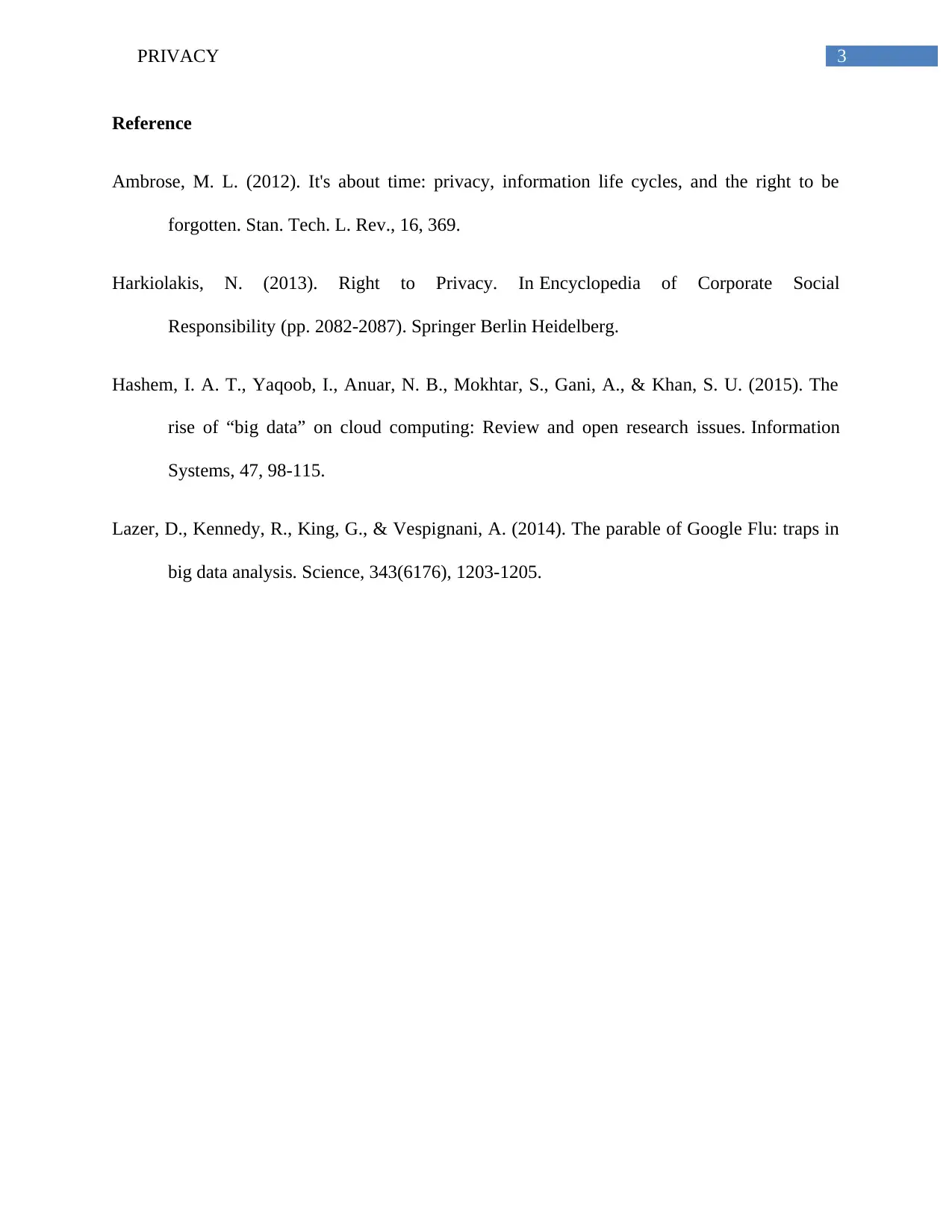University Case Study: Privacy Rights in Google vs. Costeja Conflict
VerifiedAdded on 2020/04/07
|4
|785
|227
Case Study
AI Summary
This case study analyzes the legal conflict between Google and Costeja, focusing on the clash between the right to privacy and the right to be forgotten. The case revolves around Costeja's request for Google to remove information that he believed was damaging to his reputation. The study identifies key issues such as Google's adherence to privacy policies and the potential impact of data removal on its search engine algorithm. Recommendations include Google issuing clear guidelines on its privacy policies to inform stakeholders and provide evidence in potential lawsuits. The conclusion highlights the challenges the 'right to be forgotten' poses to Google's business activities and suggests that implementing the recommendations can mitigate future legal issues. The analysis incorporates relevant literature and provides a comprehensive overview of the case's implications for privacy rights in the digital age.
1 out of 4










![[object Object]](/_next/static/media/star-bottom.7253800d.svg)